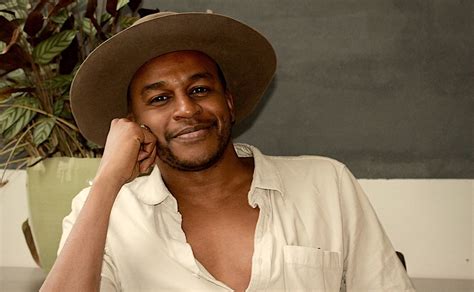A Quote by Billy Collins
You come by your style by learning what to leave out. At first you tend to overwrite—embellishment instead of insight. You either continue to write puerile bilge, or you change. In the process of simplifying oneself, one often discovers the thing called voice.
Related Quotes
It's not a choice. Either I write or I don't, especially when I'm in a foreign culture. I've lived in London for years, and I must continue my writing and filmmaking. The most important thing for an artist or an author is to continue her work. Languages and settings are the tools but not the first thing.
almost all American writers tend to overwrite, to tell too much. I get the disillusioned feeling that novels, today, are sold by the pound, like groceries. It actually takes a great deal more discipline to be able to leave out rather than to throw in everything. This means that you have to say in one sentence precisely what you mean, instead of saying sort of what you kind of mean in hundreds of sentences and hoping the sum total will add up.
There is no such thing as maturity. There is instead an ever-evolving process of maturing. Because when there is a maturity, there is a conclusion and a cessation. That’s the end. That’s when the coffin is closed. You might be deteriorating physically in the long process of aging, but your personal process of daily discovery is ongoing. You continue to learn more and more about yourself every day.
The good part of writing is where it gets out of your control and turns into something else. You look at it and think "Whoa, where did that come from? That wasn't what I meant to write, but it's more interesting than what I was intending. Which part of my subconscious or my experience did that come from?" Often the answer isn't clear, and often the line between fiction and fact isn't clear, either.
My advice for aspiring writers is threefold.First, read as much as possible, both within and outside the genre you arem working in. By reading you hone your internal ear for style. Second, write. Everything comes down to it; unless you write, you are not a writer. Third, submit your work. But - stop chasing every seductive new market out there, and stop trying to write for the tastes of specific established professional markets and editors. That way lies mediocrity and eventual
dissolution of your true voice, no matter how embryonic or pronounced it may be now.
Styles tend to not only separate men - because they have their own doctrines and then the doctrine became the gospel truth that you cannot change. But if you do not have a style, if you just say: Well, here I am as a human being, how can I express myself totally and completely? Now, that way you won't create a style, because style is a crystallization . That way, it's a process of continuing growth.
In animation, you may be working with 20 writers, and everybody has to write the same thing. You can't have episodes that don't feel like they belong. In comics, you're gonna write a whole run, which means it's your style that's coming through. But when you're working on a show that's collaborated with a dozen other writers, you have to have a style that blends the show together. So you can't write it the way you normally would, because your script will stand out from all the others.
I find it very difficult not to write in any sort of Sudanese style. With Sudanese music, there are very specific things that happen with the syncopation of the drums, melodies and stuff. And whenever I write, that's always the first thing that comes out, because I grew up listening to it. It's a part of me, so I try to bring that out in the music. I think that you have to be honest with what you do, and that's the most honest thing that I can do, is to write that way.
As a songwriter, you tend to develop your own style, your own technique, based around what it is you're trying to write and perform, in terms of your own music. So a way of evolving a guitar style as a songwriter is much easier, I think, than developing a true style of your own just from listening to music or playing other people's music.
Write like you write, like you can't help but write, and your voice will become yours and yours alone. It'll take time but it'll happen as long as you let it. Own your voice, for your voice is your own. Once you know where your voice lives, you no longer have to worry so much about being derivative.
For me, music is in no way ornamental or decorative, it's constitutive of who I am. And that's why, when I say I'm a blues man, that's a very serious vocation - to muster the courage to find your own unique voice, to forge your distinctive style in the world, to leave your imprint in the sands of time in such a way that your singularity, your individuality, remains something that people have to come to terms with.





































